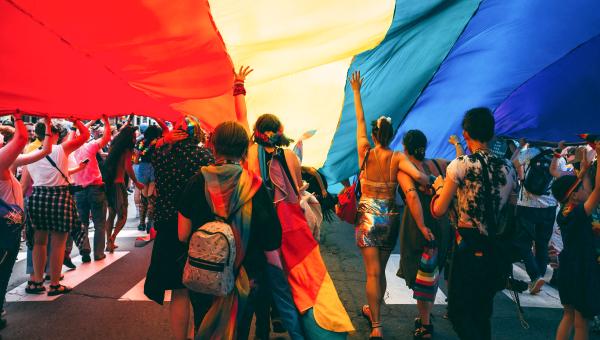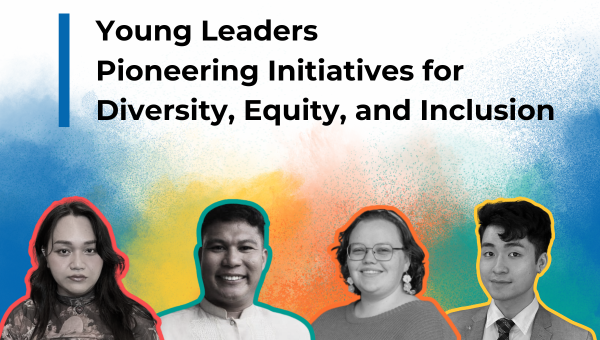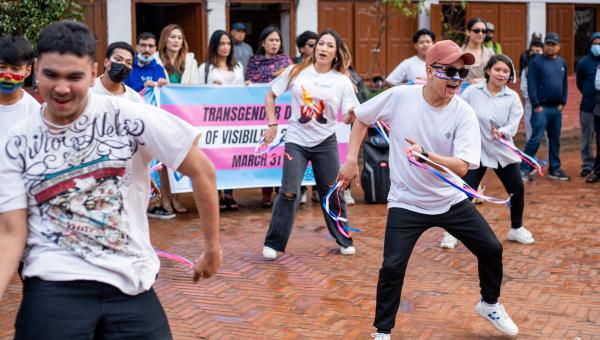Being LGBTI in Asia and the Pacific
Being LGBTI in Asia and the Pacific is a regional programme aimed at addressing inequality, violence and discrimination on the basis of sexual orientation, gender identity or intersex status, and promotes universal access to health and social services. It is a collaboration between governments, civil society, regional institutions and other stakeholders to advance the social inclusion of lesbian, gay, bisexual, transgender and intersex (LGBTI) people. The programme recognizes that LGBTI people are highly marginalized and face varied forms of stigma and discrimination based on their distinct sexual orientations, gender identities and expressions. The programme is supported by UNDP, the Embassy of Sweden in Bangkok, the U.S. Agency for International Development, the Australian Department of Foreign Affairs and Trade, the Ministry for European Affairs and Equality (Malta), the Government of Canada and Faith in Love Foundation (Hong Kong).
Objectives
Convening stakeholders
The programme brings key stakeholders together to foster a greater understanding of the marginalization and exclusion faced by LGBTI people in the region. The purpose of this is to identify, discuss and eventually move beyond the obstacles that contribute to exclusion, discrimination and violence against people of diverse sexual orientation and gender identities. This objective includes facilitating South-South cooperation and learning opportunities among governments, civil society, human rights bodies and other stakeholders.
Regional partners include: the Asia Pacific Transgender Network (APTN), Asia Pacific Forum of National Human Rights Institutions (APF), Asean SOGIE Caucus (ASC), B-Change Foundation, International Labour Organization (ILO), UN Educational, Scientific and Cultural Organization (UNESCO), UN Office of the High Commissioner for Human Rights (OHCHR), UN Women, Joint United Nations Programme on HIV/AIDS (UNAIDS), World Health Organization (WHO), The Economist Events, The Lancet and the Salzburg Global Seminar.
A Technical Advisory Group provides guidance to the initiative, comprising experts from academia, civil society, government, human rights bodies, communication and social media, the private sector and LGBTI groups.
Strengthening strategic information
The programme strives to address the large research gaps that currently exist on the stigma, discrimination, violence and human rights violations experienced by sexual and gender minorities in Asia. By addressing these gaps the programme seeks to equip duty bearers with the strategic information required to adequately address stigma and discrimination, end harmful practices that fuel human rights violations against LGBTI individuals in public and private settings, and to ensure these marginalized groups have equal access to justice and public services.
Expected outcomes
- Increased participation of LGBTI people in policy development including universal access to health, social services, education and employment, and rule of law and accountability mechanisms
- Greater understanding amongst stakeholders of the development dimensions and inclusion of people of diverse sexual orientation and gender identities
Together, these objective and outcomes contribute to the achievement of: SDG 1, 3, 4, 5, 8, 10, 16.
Publications
UNDP, UNESCO (2022). Resources for, and Needs of Vulnerable and Marginalized Young People on Digital Literacy, Safety and Participation.
UNDP (2021). Situation Analysis of Substance Use among LGBT Communities in Thailand.
UNDP (2020). Mapping of Good Practices for the Management of Transgender Prisoners.
UNDP Thailand, Ministry of Social Development and Human Security (2020). Operational Manual for Government Agencies and Officials for Gender Equality Protection according to the Gender Equality Act B.E. 2558 (2015).
UNDP Thailand, Ministry of Social Development and Human Security (2020). Assessment Report: Implementation of the Gender Equality Act. B.E. 2558 (2015).
UNDP Thailand (2020). Stories of Stigma: Exploring Stigma and Discrimination against Thai Transgender People while Accessing Health Care and in Other Settings.
UNDP Philippines, ODI & Galang (2020). Making it work: Lesbian, bisexual and transgender women’s economic empowerment in the Philippines.
UNDP Thailand (2019). Tolerance but not inclusion: A national survey on experiences of discrimination and social attitudes towards LGBT people in Thailand.
APTN, UNDP, Curtin University (2018). Denied Work – An audit of employment discrimination on the basis of gender identity in South-East Asia.
APTN, UNDP (2018). From barriers to bridges: Increasing access to HIV and other health services for trans people in Asia.
UNDP, ICRW, APCOM (2018). Know Violence: Exploring the links between violence, mental health and HIV risk among men who have sex with men and transwomen in South Asia.
UNDP, China Women’s University (2018). Legal Gender Recognition in China: A Legal and Policy Review.
UNDP, ILO (2018). LGBTI People and Employment: Discrimination Based on Sexual Orientation, Gender Identity and Expression, and Sex Characteristics in China, the Philippines and Thailand.
UNDP, Commission on Human Rights of the Philippines (2018). Legal Gender Recognition in the Philippines: A Legal and Policy Review.
UNDP, MSDHS (May 2018). Legal Gender Recognition in Thailand: A Legal and Policy Review.
UNDP, APTN (December 2017). Legal Gender Recognition: A Multi-Country Legal and Policy Review in Asia.
Burapha University (July 2017). A tool for Change: Working with the Media on Issues Relating to Sexual Orientation, Gender Identity, Expression and Sex Characteristics in Thailand.
UNDP, PGA (2017). Advancing the Human Rights and Inclusion of LGBTI People: A Handbook for Parliamentarians.
The World Bank, UNDP (November 2016). Investing in a research revolution for LGBTI inclusion.
The Lancet, UNDP (June 2016). The Lancet special issue on transgender health.
UNDP, APF (2016). Promoting and Protecting Human Rights in relation to Sexual Orientation, Gender Identity and Sex Characteristics: A Manual for National Human Rights Institutions.
UNDP (May 2016). Being LGBTI in China – A National Survey on Social Attitudes towards Sexual Orientation, Gender Identity and Gender Expression.
UNDP, APTN, HPP (October 2015). Blueprint for the Provision of Comprehensive Care for Trans People and Trans Communities in Asia and the Pacific.
UNDP (2015). Report of the Regional Dialogue on LGBTI Human Rights and Health in Asia-Pacific.
UNDP, APF, APCOM (2015). Report of the Workshop on the Role of NHRIs in Promoting and Protecting the Rights, including Health, of LGBTI People in Asia and the Pacific.
UNESCO, UNDP (2015). Meeting Report: Asia-Pacific Consultation on School Bullying Based on Sexual Orientation and Gender Identity/Expression.
UNDP, USAID (2014). Being LGBT in Asia Country Reports - Cambodia (English, Khmer), China (English, Chinese), Mongolia (English, Mongolian), Nepal (English, Nepali), Philippines (English), Thailand (English, Thai), Viet Nam (English, Vietnamese).
Follow us
Facebook | Twitter | Medium | Instagram | Subscribe to our mailing list

 Locations
Locations



